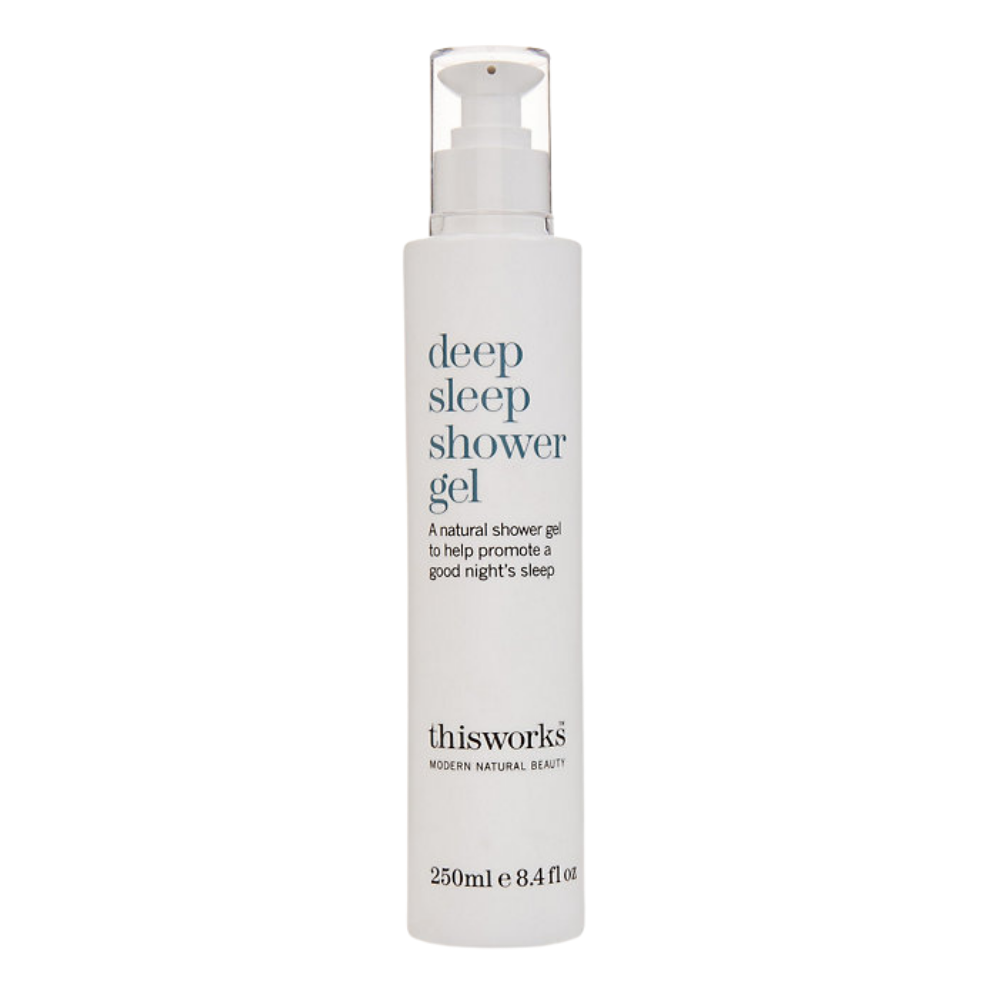15 Tips To Create A Bedtime Routine For Adults (That You Can Actually Stick To)
The Style Diary is supported by its readers. We may earn an affiliate commission when you buy through links on this website. Learn more.It can’t be underestimated how important sleep actually is, and yet many of us just don’t get enough of it do we?
If you're like me, procrastinating leads to technology overuse as the major factor.
Whether it was scrolling through Facebook, looking at cute animal videos, watching true crime on Youtube, getting inspiration from Pinterest or just writing for this blog, I did much of this in the night when I really should have been catching some zzz’s instead.
So the next day I’d feel fatigued, I was physically inactive and a bit lazy to be honest. It was harder to concentrate, and I became scatty - forgetting things like dentist appointments.
I knew that it was attributed to my sleeping pattern, but it was so hard to break out of it because it became a habit!
At the same time, I knew it was important to make a change, not just for having a sharper mind for productivity and organisation in the day, but for overall health too.
According to Healthline, getting a better night sleep improves weight loss (hormone regulation) and general fitness (through the motivation to exercise), symptoms of depression, lowers the risk of heart disease and stroke and improves concentration and productivity.
After reading all the benefits I’m guessing you’re convinced that you need to count much more sheep when the moon is out too!
But if it’s not as simple as that, and you find yourself staying up late due to stress, anxiety or depression - this could lead to insomnia.
Image | Cottonbro / Pexels
Insomnia is a sleep disorder that affects “as many as 35% of adults” according to Sleep Foundation. The most common symptoms are:
Waking up during the night
Difficulty falling asleep
Feeling tired and irritable in the day
Waking up early and trouble falling back to sleep
These symptoms are mostly attributed to lifestyle and dietary factors.
Severe cases of insomnia last longer than three months which is referred to as long-term insomnia. In this case, it would be a good idea to seek advice from your doctor, but if not, there are many conventional tips and methods for getting a good night’s sleep.
You’ve likely already heard of drinking a cup of camomile, taking a hot bath right before bed, even buying a new mattress if that’s the cause of sleep deprivation due to discomfort (because sleep quality is just as important as sleep duration), but there may be some tips on this list you haven’t yet considered.
Here are 15 other tips that can help you establish a bedtime routine that you can tailor to you and your lifestyle.
1. Get The Right Room Temperature
Image | Dan LeFebvre / Unsplash
If your bedroom is either too hot or too cold, it might make you uncomfortable and unable to fall asleep.
According to The Sleep Charity, “an ideal bedroom temperature is around 16-18°C (60-65°F)”, so it’s worth investing in a room thermostat.
If you don’t want your energy bills to skyrocket you could also consider getting a thicker tog duvet or extra sheets, wearing some bed socks or using a hot water bottle.
On the other hand, if you find that your bedroom gets quite hot, you could consider keeping a window open, wearing cotton pyjamas, or using a lower tog duvet.
2. Practice Breathing Exercises
Image | Somnifix
You may not think it, but breathing exercises affect your whole body as it engages your cardiovascular and nervous systems.
It relieves stress and tension, removes excess air build-up at the top of your lungs, reduces blood pressure and helps you to relax! Even two minutes every night before sleep can help you unwind.
There are different types of breathing techniques. Verywellmind wrote a helpful article on 7 Breathing Exercises For Better Sleep. If you have a deeper interest in breathing exercises and want to undertake a course, check out the Wim Hof Method.
3. Write Down Your Thoughts In A Diary
Image | Vlada Karpovich / Pexels
Busy brain? Writing down your thoughts can help to keep a steady mind and gather your thoughts, reflect on your day, improve your writing, set goals and build confidence.
You could also keep a diary to nurture positive self-talk, create ideas, write poems, or even manage and track symptoms if you suffer from any addictions.
You may find this to be a relaxing and therapeutic thing to do every night 30 minutes or so before bed.
4. Listen To Classical Music
Image | Andrea Piacquadio / Pexels
The reason why classical music is the preferred genre to fall asleep to is that the slow and calming melodies put you in a good mood, which is due to a hormone that the body produces called dopamine, making you feel happy and tuning out negative thoughts, stress and anxiety.
Your favourite songs probably have lyrics but there is a high chance this will keep you awake longer because your brain will actively keep remembering the words!
5. Exercise In The Day
Image | Blue Bird / Pexels
Yes, a link between adequate sleep and moderate exercise does exist. Getting enough exercise in the day can support your sleep routine in a few ways.
According to Sleep Foundation, regular exercise can “lower the risk of diseases like cancer and diabetes, improve physical function, and a higher quality of life…moderate-to-vigorous exercise can increase sleep quality for adults by reducing sleep onset – or the time it takes to fall asleep – and decrease the amount of time they lie awake in bed during the night”.
There might be circumstances which could make it difficult to get a good amount of exercise, like if you are at work all day in a sedentary job or if you have young children at home.
If at work, you could use the stairs instead of the lift or go for a walk every lunchtime. If you have a young child(ren), consider a slightly longer route walking to the park or try at-home exercises.
GrowwithJo on YouTube is amazing! She has many low impact full-body cardio workouts that only last between 10-20 minutes.
6. Practice Meditation
Stress and anxiety are very common causes of sleep deprivation so finding a tension-reducing activity before bed is crucial to a good night’s sleep, one of the top ways to do this is meditation.
Just 20 minutes a day of meditation helps to redirect your mind to positive and calming thoughts, get in tune with your spiritual self, and improve your emotional health.
Other benefits to daily meditation include:
Enhanced self-awareness
Makes you feel rejuvenated
Improves your attention span
It may help to fight addictions
7. Set An Alarm To Start Preparing For Bed
Image | Acharaporn Kamornboonyarush / Pexels
Alarms are not just for the morning! You can use an alarm to signal you to start getting ready to hit the hay!
This will help you to create a schedule, improve organisational skills and increase self-discipline (which can improve other areas of your life too!)
For instance, if your bedtime will be 10 pm, set your alarm for 8:30 pm, to plan out your clothes for the next day, have your bath, have a warm tea etc before bed.
8. Try Yoga
Image | Alexy Almond / Pexels
Yoga is another calming activity, which is great to do before bed. Like meditation, it helps to relieve stress, reduce anxiety and promote feelings of calm, but yoga engages your body by using various physical postures or “asanas” for mental and physical well-being.
If you are a yoga newbie, check out Yoga For Beginners on YouTube taught by Adriene Mishler who is an international yoga teacher.
9. Prepare Your Bedroom
Image | Kampus Production / Pexels
It’s no secret that your surroundings or environment has a profound effect on your mood. Have you ever noticed how summer tends to lift our spirits while winter months make us feel a bit down?
It’s just like how an untidy room vs a tidy room can also impact our mood. When our space is full of clutter, disorganised or unclean, we find it hard to focus, it can even spike our anxiety levels.
An article on RACGP states that “our brains like order…the visual distraction of clutter increases cognitive overload” which is exactly what we don’t need when trying to sleep.
10. Listen To Nature Sounds
No, you can’t make it rain every night, but you could listen to the sound of white noise, rainfall and thunderstorms, ocean and rivers, woodland or jungle ambience on Youtube. I’m a big fan of this myself and usually listen to Relaxing Sounds of Nature, some of these videos are 8+ hours long. You may prefer to use an app like Headspace or Calm instead which has a large catalogue of nature sounds too.
Nature sounds truly help to relax the mind, reduce stress and fall into a deep sleep. If you suffer from tinnitus - nature sounds have been shown to provide some relief from the intensity according to the British Tinnitus Association.
11. Make Your Bedroom A No-Food Zone
Image | Kira Schwarz / Pexels
This one hits different for me! I was a certified night-time fridge raider - I’d have my Netflix show ready to binge with the tablet screen propped up on the headboard and a pack of biscuits or large of Dorito crisps on the side.
But eating late at night is one of the worse times to eat in general because your body is not in a fat-burning mode so weight gain is almost inevitable, but it has also been linked to a number of other health-related concerns including severe acid reflux.
Not only that, any type of sugar is generally bad causing issues like tooth decay, weight gain and increasing your chances of getting diabetes, but sugar also stimulates the body increasing blood sugar levels, and gives us a boost of energy which we really don’t need right before bed.
So it might be best to not associate your bedroom with food altogether.
12. No Social Media
Image | Prateek Katyal
If you live on social media this one will be hard!
The problem with social media is that there is so much information to absorb even in a few scrolls, one topic quickly shifts to another and you quickly find yourself going down the rabbit hole.
If you can manage to stop accessing social media at least an hour before bed, you can form self-discipline and start appreciating life outside the screen again.
13. Read A Book
Image | Meruyert Gonullu / Pexels
Tucking into a good book has always been a therapeutic pastime, but you also build practical skills too like expanding your vocabulary, improving your memory and increasing your attention span.
Aside from that, some of the greatest movies were adapted from a book like The Life of Pi, To Kill A Mockingbird and The Shawshank Redemption to name a few.
So reading can invite your imagination to go wild allowing you to escape into another world for a bit which could be a great stress and anxiety-reliever for you.
14. Don’t Watch A Scary Movie Right Before Bed
Image | Andres Ayrton / Pexels
Now you know ‘horror’ is my favourite movie genre! I mean, what other genre can really give as much anticipation and unexpected jump-scares? And in the last 10 years, we’ve been hit with some horror bangers like the Conjuring, Sinister and Army of the Dead, and like many people, I do like to watch these movies late at night in the living room with the lights out and surround speakers on for the full effect!
But if I immediately try to go to sleep afterwards, the fluffy gown hung up on my bedroom door suddenly looks like a shadowy creature from the depths of hell or I imagine someone is eerily watching me while sitting in the chair in the corner of the room!
So the only way I can distract my mind is to watch something else completely innocent, but this takes up more time!
No one is saying not to enjoy the guilty pleasure of a good horror flick, just time it well before bed if you know your imagination will run wild after watching one.
15. Limit Caffeine Late In The Day
Image | Secret LDN
It’s no secret that coffee is one of the most popular beverages in the world, and for good reason, it can help to get you through a long day at work, it’s a social drink, it’s packed with antioxidants and is reasonably priced.
But drinking too much coffee can leave you feeling sleepless and jittery due to the caffeine in it, which is a stimulant that “acts as a molecular mimic, filling and blocking the adenosine receptor, preventing the body’s natural ability to be able a rest when it’s tired.” - QRUIS
If you just can’t live without coffee, try to stop drinking it at least 6 hours before bed.
-
The 3 2 1 Bedtime Rule for adults is a simple guideline that can help individuals optimize their sleep routine and ensure a good night's rest. The rule suggests that adults should aim for:
3 hours before bed: Avoid consuming caffeine or other stimulants at least three hours before bedtime. This includes beverages such as coffee, tea, energy drinks, and certain sodas. Stimulants can interfere with the body's ability to relax and fall asleep, so it's best to give yourself ample time to process and eliminate these substances from your system before heading to bed.
2 hours before bed: Limit the consumption of food and drinks, particularly large meals, within two hours of bedtime. Eating heavy or spicy foods close to bedtime can cause indigestion and discomfort, making it more difficult to fall asleep or maintain uninterrupted sleep. It's best to opt for lighter meals and avoid excessive fluid intake to prevent disruptions in your sleep cycle.
1 hour before bed: Establish a relaxing bedtime routine and create an environment conducive to sleep. This includes engaging in calming activities like reading, listening to soothing music, or taking a warm bath. Additionally, it's important to create a sleep-friendly environment by keeping the bedroom cool, dark, and quiet. Minimizing electronic device usage, such as smartphones or tablets, is also advised as the blue light emitted by these devices can interfere with the natural sleep-wake cycle.
-
The golden rule of sleep can be summarised as ensuring you get an adequate amount of quality sleep on a consistent basis. This rule emphasises the importance of prioritising sleep and understanding its impact on overall health and well-being.
To adhere to the golden rule of sleep, it is recommended that adults aim for seven to nine hours of sleep every night. This duration allows the body and mind to repair, rejuvenate, and prepare for the challenges of the following day.
However, it's important to note that individual sleep needs may vary slightly, and it's essential to listen to your body's signals to determine the right amount of sleep for you.
Quality of sleep is equally important as quantity. It refers to the depth and restfulness of sleep. Achieving quality sleep involves creating a sleep-friendly environment, such as a cool, dark, and quiet room.
Minimising distractions and creating a relaxing bedtime routine can also contribute to better sleep quality.
Neglecting the golden rule of sleep can have significant consequences on both physical and mental health.
Sleep deprivation can lead to decreased cognitive function, impaired memory, reduced immune system function, increased risk of chronic conditions like heart disease and diabetes, and even mental health issues such as depression and anxiety.
BEDTIME ESSENTIALS ON MY WISHLIST




Let me know in the comments if you have already incorporated some of these tips into your bedtime routine or if there is any you plan to use!
Sharing is caring!
Chanel x





















